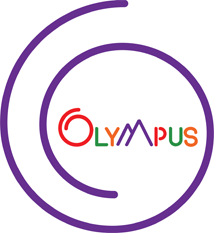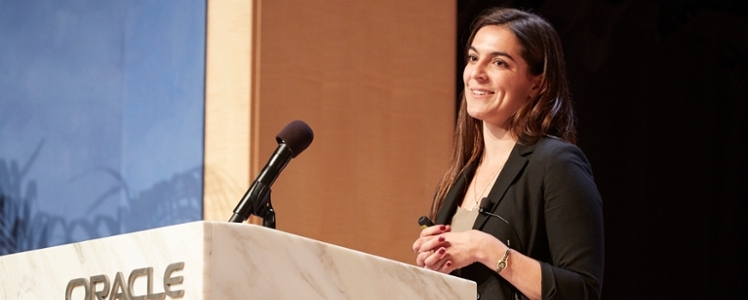Friday, May 27, 2016
Carnegie Mellon Teams with Pittsburgh in Smart Cities Challenge
REDWOOD SHORES, CALIFORNIA—Carnegie Mellon University and the city of Pittsburgh are among seven finalists vying for a $50 million US government grant to use technology to improve transportation in US cities. The winner of the grant is expected to be announced by the end of June.CMU regularly engages with government and private sector entities to ensure that technologies developed in its classrooms find real-world applications. CMU’s Center for Innovation and Entrepreneurship on Wednesday held its fourth annual LaunchCMU event, where it introduces student and faculty projects to the venture capital community. This was the third year Oracle hosted the event on its main campus here.
In addition to vying for the $50 million grant, CMU and Pittsburgh hope to address a number of problems common to urban areas, from traffic congestion to rat infestation, says Raj Rajkumar, a CMU professor of electrical and computer engineering. More than 80% of the US population now lives in urban areas, Rajkumar notes.
Metropolitan areas consist of systems of interrelated but siloed systems, he says. The goal of Metro21, of which he is director, is to help develop “globally coordinated and optimized systems” that city managers can use to improve services and the quality of urban life.
LaunchCMU featured a dozen or so smart-city-themed startups, set up by CMU graduate students and faculty members, all competing for the attention of the venture capital fund managers in attendance. Among them:
• RoBotany has developed robotics and analytics to increase the efficiency of “vertical farms,” which are indoor farms that optimize space by growing plants in trays stacked high above the ground. Benefits of vertical farms include their proximity to consumers and their highly controlled environment for growing food.
But they’re challenging places to work because they require employees to lift heavy trays full of plants when they need to be moved or analyzed, says RoBotany founder Austin Webb. RoBotany uses robots to move the trays and analyzes data captured by sensors to improve plant growing conditions. “Vertical farms are the future,” says Webb, who estimates that RoBotany can improve labor efficiency by 50%.
• Airviz is seeking to reduce people’s exposure to air pollution by selling a smart device that measures particles in the air. And under a partnership with 100 public libraries nationwide, low-income people can borrow the devices and measure the pollution in their homes, says Sarah Longo, Airviz’s operations manager.
Government agencies and organizations such as the Environmental Protection Agency have similar technology, but each device costs in the tens of thousands of dollars, Longo says. Airviz’s devices, which fetch about $150, are much less expensive because they use cheap sensors to collect data, which is then analyzed remotely using proprietary algorithms on a centralized computer.
• Rapid Flow Technologies has developed technology to improve automobile traffic flow by applying optimization logic to real-time traffic data. The technology, already in use at 50 intersections in Pittsburgh, has reduced wait times by 40% and emissions by 21%, says Greg Barlow, the startup’s CTO.
Dave Mawhinney, codirector of CMU’s Center for Innovation and Entrepreneurship, says the university encourages students to work closely with commercial sponsors, venture capitalists, and other for-profit businesses whenever possible. “Having these relationships is hugely important to progressing the ball,” he says.
Several LaunchCMU alumni already have found commercial success, Mawhinney notes. One such company is Solvy, which has created intelligent enterprise search and retrieval to improve customer service. Solvy has raised $1 million in seed funding, and another $3.5 million in Series A funding from True Ventures, says CEO Mehdi Samadi.
Oracle hosts LaunchCMU in large part because of their similar visions, says Bob Evans, Oracle senior vice president and chief communications officer. Oracle and CMU, he says, “share some of the same values of entrepreneurship and innovation.” Read More»
By: Michael Hickins

